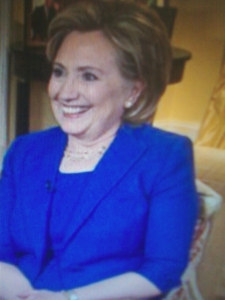Who called women “fat broads” and “horse-faced lesbians?
If you said President Donald Trump, it would be understandable given his past vulgar statements about certain females. However, you would be wrong.
The answer is Michael Bloomberg, who participated in his first Democratic presidential debate on Wednesday, February 19, after kicking off his campaign 10 weeks ago.
The multibillionaire, who’s already spent some $400 million in staffing and advertising in Super Tuesday states, was given more of a rude awakening than a welcome hug. He was immediately inundated with criticism on his controversial criminal justice policy from his days as New York City mayor, commonly known as “stop and frisk.” That policy disproportionately impacted young black men. He also made some insensitive comments on a little-known radio show in 2015, about how a majority of crimes in the Big Apple were committed in minority neighborhoods.
In the last couple of weeks, Bloomberg had also came under fire for sexual harassment allegations during his time as head of his media company. That conduct resulted in several nondisclosure agreements (NDAs).
Sen. Elizabeth Warren, a once exciting progressive favorite who’s been fading in recent polls, vigorously attacked Bloomberg, describing stop and frisk was a racist policy.
“It unfairly targeted minority communities,” he said.
Bloomberg said when he was elected mayor, the city had some 650 murders and he felt it was his responsibility “to give people the right to live.”
He added that as time went on, he realized the program “got out of control.”
But former vice president Joe Biden pointed out that Bloomberg was against the Obama Administration’s monitors that were sent to review the policy. He described the policy as “abhorrent.”
Sen. Bernie Sanders, who’s been surging in recent polls, said support for policies like stop and frisk “is not a way you’re going to grow voter turnout.”
Sex Harrassment Claims and Non-Disclosure Agreements
Regarding his treatment of women, Bloomberg said he’s had several women work for him in his company, philanthropic foundation, and administration.
But Warren said that response left a lot to be desired.
“His defense was, I’ve been nice to some women,” she said, a remark that received applause from the packed auditorium in Las Vegas, Nevada, the state where the caucus will take place on Saturday. “We are not going to beat Donald Trump with the drip-drip-drip of sexual harassment claims.”
She also called on Bloomberg to release the women from their NDAs “so we can hear what they have to say.”
But Bloomberg said the NDAs were consensual. He admitted, though, there were a few women who “maybe ….didn’t like the joke I told.”
Biden said Bloomberg simply needs to say yes to release them from the NDAs.
“This is about transparency,” he said.
Electability
When it comes to electability, Bloomberg said if Sanders is the nominee, expect four more years of Trump.
“I don’t think there’s any chance (Sanders could defeat Trump),” he said.
But Warren said Bloomberg isn’t the white knight that his ubiquitous ads may indicate, adding that the Democrat Party isn’t setting a good example “if we substitute one arrogant billionaire for another.”
Bloomberg said he is the most well positioned candidate to take on the current president.
“I know how to take on an arrogant con man like Donald Trump,” he said.
However, Buttigieg pointed out some basic prerequisites need to be met first.
“Let’s put forward someone who’s actually a Democrat,” Buttigieg said to thunderous applause. “We have one person who wants to burn the party down and another who wants to buy the party out.”
Bloomberg was a Republican for many years, and Sanders, who almost always caucuses with the Democrats, is technically an independent and a self-proclaimed “Democratic socialist.”
Toward the end of the debate, none of the candidates except Sanders would say they would commit to supporting the candidate with the most delegates at the convention.
This question was especially pertinent given that with the large field of candidates, no single candidate is expected to reach the majority threshold of nearly 2,000 delegates. Many pundits are predicting a brokered convention, which involves a lot of wheeling and dealing and movement of delegates from one candidate to another.
Health Care
Bloomberg was also taken to task for his support—or lack of support—for the Affordable Care Act, commonly known as “Obamacare.” Biden pointed out that Bloomberg initially called the ACA a “disgrace.”
But Bloomberg said he supports the health care act overall. He admitted that he initially thought the law didn’t go far enough, since it didn’t include a public option. He, along with fellow candidates Biden, former South Bend mayor Pete Buttigieg, and Sen. Amy Klobuchar (D-Minnesota), support the addition of a public option, which is a far contrast from the much more ambitious—and expensive– “Medicare for All” plan that Sanders has made the cornerstone of his campaign.
Some of the other issues discussed in the debate include:
*All candidates believe more must be done to deter climate change/global warming, but not everyone embraced the so-called “Green New Deal,” championed by Sanders. They called for lifting fuel mileage restrictions, shutting down coal-fired plants, and putting limits on mining and drilling on public lands.
*Sanders proposed allowing employees to have ownership stakes in the companies they work for, and to be able to serve on the boards
*Warren slammed health care proposals put out by Klobuchar and Buttigieg, describing them as “a Post-It Note” and “a Powerpoint” respectively.
*Klobuchar admitted she did not know the name of the president of Mexico. However, she attributed it to a momentary lapse, adding she knows much about trade policy in Latin America. She pointed out she supported the recently enacted United States Mexico-Canada Act, a successor to the much-maligned North American Free Trade Agreement.

